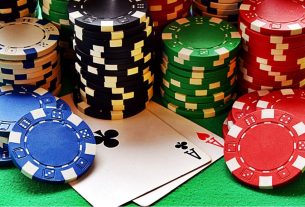Poker requires strong logical thinking abilities for success, and anything that enhances this capacity can help players learn quicker and boost performance. Anything that increases an individual’s strategic reasoning skills could accelerate learning curves and speed up performance improvements.
Modern technology provides tools for strategic development, giving players a means to review their game and adapt their tactics. AI integration into online platforms has also altered gameplay significantly by drawing tech-savvy gamers into playing more deeply within games.
Accessibility
Poker is a game that requires strong logical thinking from its participants, so anything that enhances that capacity should be explored further. A number of apps claim they can help, and these services are becoming more widely integrated into poker platforms.
Modern digital technologies make becoming a competitive poker player easier than ever before. Watching videos and studying advanced strategies on subreddits dedicated to poker are both excellent resources to accelerate newcomer’s learning process.
Furthermore, poker software has evolved considerably in recent years, fostering greater strategic understanding for players. Trackers and heads-up displays (HUDs) allow them to customize the data they see while in-game to further customize gameplay and maximize opportunities. GTO solvers allow for the calculation of optimal poker strategies that humans would find impossible to master – raising the standard of play further still. GTO solvers also facilitate more effective training regimes so players can reach their full potential more effectively.
Immersion
Poker is a game of strategy, and modern technology gives players tools for strategic development. Online poker platforms enable users to review their own play and identify areas for improvement through data analytics tools based on player analysis rather than intuition.
Digital technology also gives newcomers to poker access to information that can help them reach their full potential. By investing time learning advanced strategies within online communities such as subreddits for poker-related discussions, players can accelerate their progression.
VR technology promises to revolutionize the poker experience by blurring the lines between physical and virtual play. VR headsets give users the experience of sitting around a physical table, heightening immersion for an unforgettable game of poker.
AI
Since the advent of poker-playing AI, strategy development and training have undergone dramatic transformation. Now players can use hand histories analysed according to game theory to analyze player tactics more objectively – no longer do biases and disjointed memories dictate players tactics; now they can use data-driven analysis to pinpoint leaks – speeding up learning processes whilst making gameplay more challenging than ever.
As sophisticated bots come online, their proliferation presents both opportunities and ethical dilemmas for poker operators. Safeguards must be put into place to ensure AI tools are used appropriately by all players, and that all games remain fair for everyone involved.
Technological progress in online poker has had another notable effect: increased tournament organization. This has attracted more trusting and active gamers who contribute rake to increase revenue at operator’s houses, thus expanding revenue streams.
Security
Digital technology now gives poker players access to an abundance of game-related data that can improve their play. By developing their logical thinking capabilities and increasing understanding of the game faster, poker players can improve their understanding and competitive edge while speeding up understanding of it and sharpening competitive edges faster.
Advanced software enables players to track both their own performance and that of their opponents, identifying leaks that would have otherwise gone undetected. This information allows players to refine their strategies, while rectifying mistakes made previously.
Live streaming provides players the opportunity to share their experiences and engage with a wide audience, which may motivate them to hone their strategies publicly in an open arena – necessitating more dynamic and refined tactics to maintain competitive edge.





